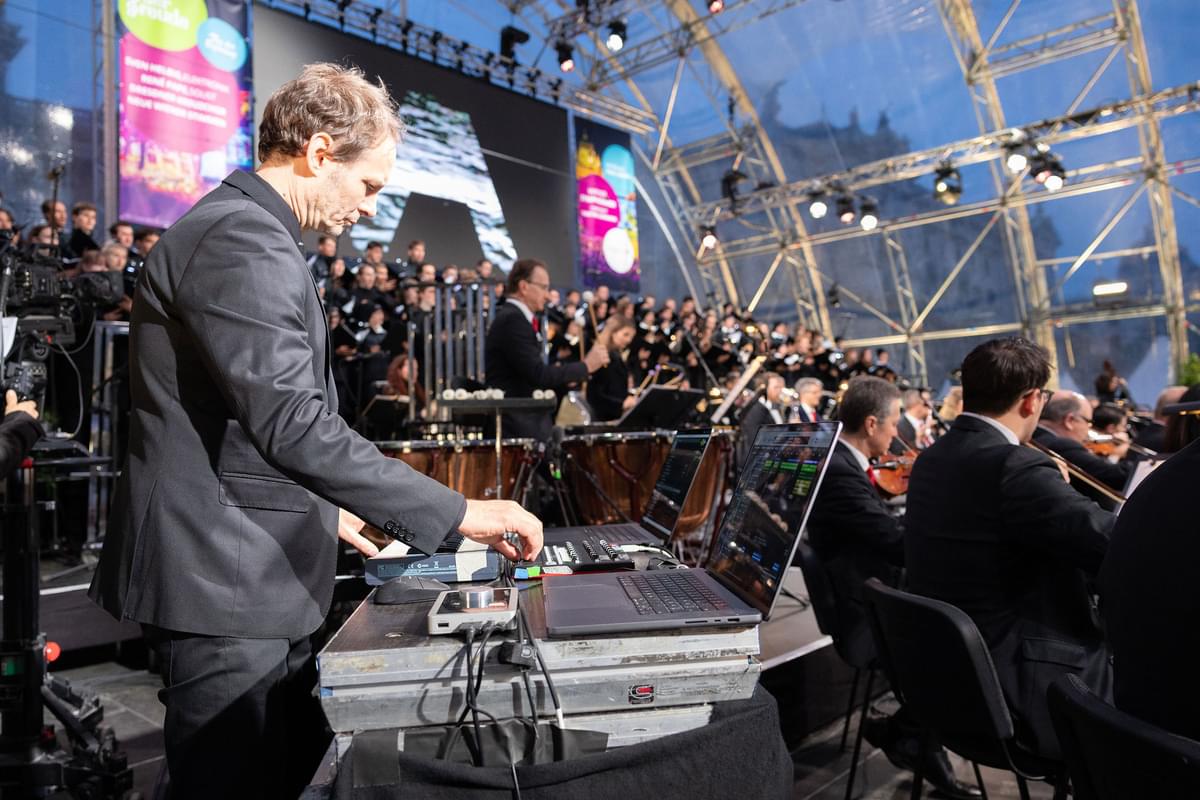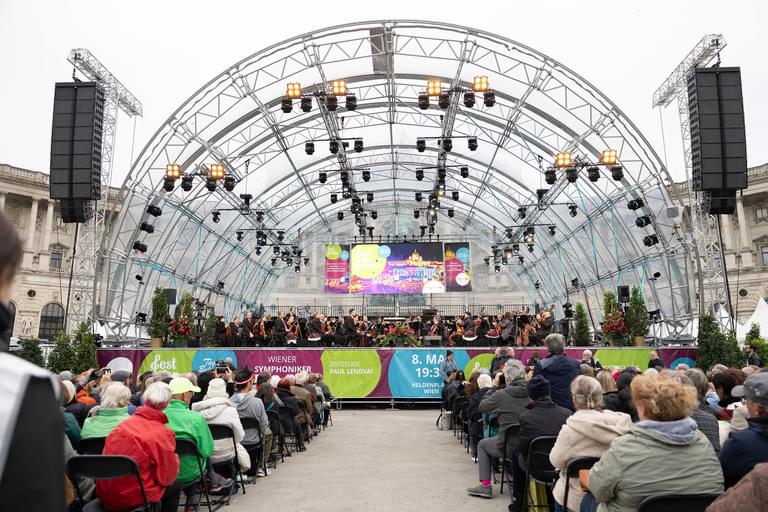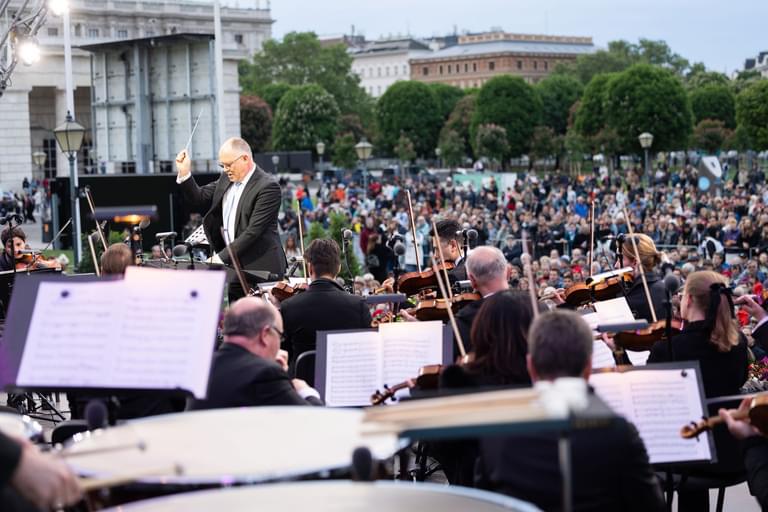
An exhale of grief and hope at Vienna's Fest der Freude
Blending liturgy, electronics, and intimate lyricism, Sven Helbig's Requiem A anchors a night of remembrance and political reflection on the 80th anniversary of VE Day live in Vienna.
"What can a piece of music do in a situation like this?" asks Ida, Sven Helbig's 14-year-old daughter. Her father, a composer known for his expansive, genre-bridging works, responds with conviction: "Without art, everything would be much worse."
His words articulate something fundamental about the role of art in democratic life. In an age of accelerated outrage and ideological fracture, art remains one of the few spaces where ambiguity can breathe.
Helbig's Requiem A embodies this ethos. It does not offer certainty; it invites reflection. The "A" stands for Anfang, the German word for beginning, but also evokes Asche (ashes) and Atmen (breath). These motifs, renewal, destruction, and the fragile continuation of life, are the foundation of the work's structure and spirit. It resists simplification or classification. In that sense, it feels deeply aligned with the best Western liberal values: preservation of nuance, protection of free expression, and the belief that personal experience can carry collective meaning.
Premiered earlier this year in Dresden and performed on 8 May at Vienna's Fest der Freude (Festival of Joy), Requiem A is the emotional centrepiece of an evening commemorating the eightieth anniversary of the end of World War II. Held at Heldenplatz, the square where Hitler declared the Anschluss in 1938, the evening does not shy away from the weight of its history.

Between musical performances are speeches from Austrian President Alexander Van der Bellen, Holocaust survivor and journalist Paul Lendvai, and representatives from the Mauthausen Committee and Jewish and anti-fascist organisations. VE Day celebrations in the UK are marked by pageantry but Austria's Fest der Freude treats remembrance as a living, urgent act. The past is honoured by interrogating the present. Speakers talk not just of 1945 but of 2025: of Gaza, Ukraine, and rising nationalism. In the UK, it is almost impossible to imagine VE Day commemorations carrying this level of political candour. But in Vienna, remembrance insists on relevance.
Into this charged atmosphere comes Requiem A, performed by the Wiener Symphoniker under Martin Lehmann, joined by the Dresdner Kreuzchor and bass soloist René Pape. The piece unfolds across twelve movements, blending Latin liturgy ("Introitus," "Kyrie," "Agnus Dei") with Helbig's original German texts and ambient electronics. Its structure mimics a bombed city partially rebuilt: fragments of the old are preserved amid newly imagined forms. This metaphor, drawn from the composer's reflection on postwar Dresden, is woven into the music's architecture; solemn chorales give way to pulsing digital textures, vocals are suspended and interrupted by electronic rubble.
Musically, Requiem A walks a fine line between austerity and intimacy. "Meer von Tränen" (Sea of Tears) swells with shimmering orchestration before dissolving into silence. "Aus der Tiefe" (Out of the Depths) begins with almost whispered choral entries, echoing Allegri's Miserere in emotional tenor, if not in style. In "Atem," the final movement, breath becomes both theme and instrumentation, a motif passed between voice and electronics, as though the music were learning to breathe again.

Visuals by Máni M. Sigfússon accompany the performance. The imagery - a woman submerged, a flicker of clouds, mossy abstract forms emerging from shadow - give an ambiguous texture. The sparseness of the visuals mirrors the music's restraint. The audience is allowed to sit with discomfort and listen without resolution.
Remembrance can fall foul of nostalgia against an increasingly brittle political landscape. Grief is either avoided or weaponised. Helbig offers something softer, stranger, and more necessary: a space to breathe. At Heldenplatz, a site heavy with the weight of history, Requiem A does not raise its voice – it exhales. In doing so, it reminds us that the work of democracy is not to preserve the past but to carry its lessons forward, with the renewed courage to begin again.
Get the Best Fit take on the week in music direct to your inbox every Friday

OSKA
Refined Believer

Tropical F*ck Storm
Fairyland Codex

Loyle Carner
hopefully !





